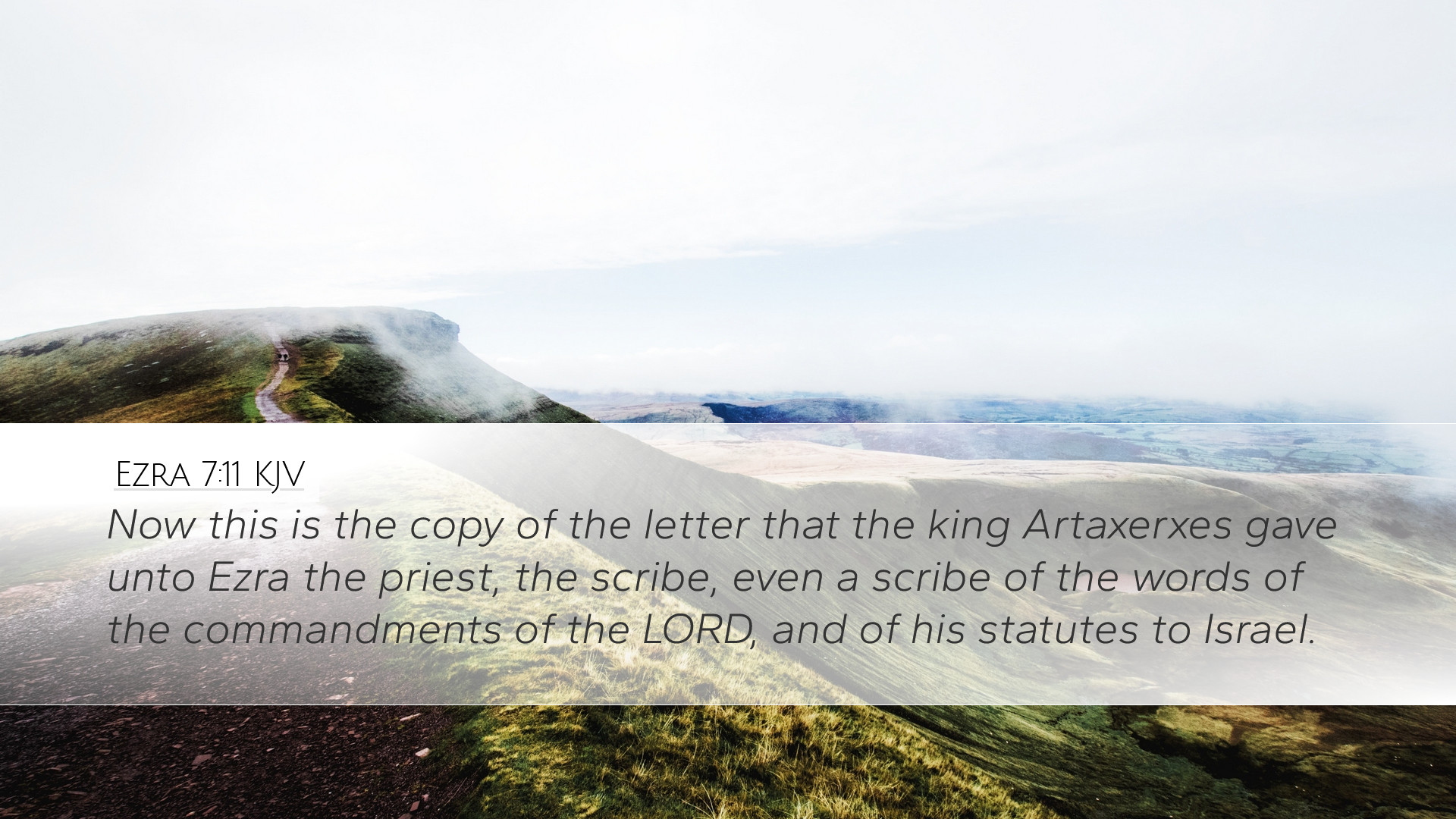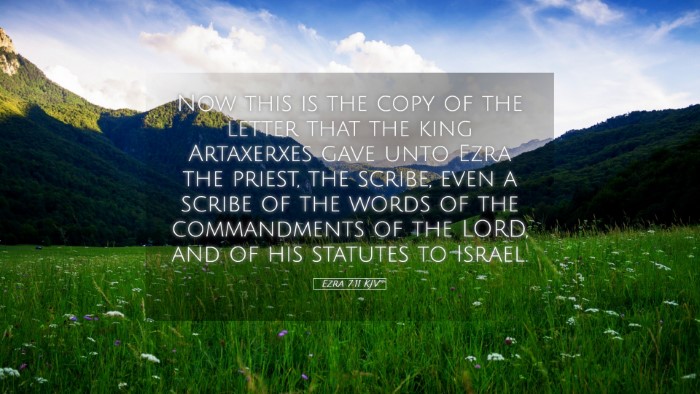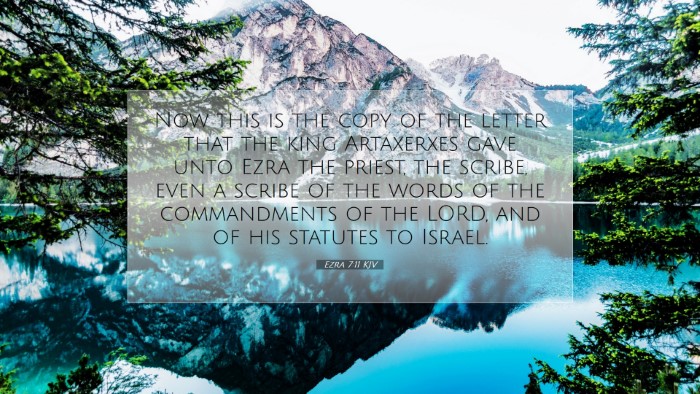Old Testament
Genesis Exodus Leviticus Numbers Deuteronomy Joshua Judges Ruth 1 Samuel 2 Samuel 1 Kings 2 Kings 1 Chronicles 2 Chronicles Ezra Nehemiah Esther Job Psalms Proverbs Ecclesiastes Song of Solomon Isaiah Jeremiah Lamentations Ezekiel Daniel Hosea Joel Amos Obadiah Jonah Micah Nahum Habakkuk Zephaniah Haggai Zechariah MalachiEzra 7:11
Ezra 7:11 KJV
Now this is the copy of the letter that the king Artaxerxes gave unto Ezra the priest, the scribe, even a scribe of the words of the commandments of the LORD, and of his statutes to Israel.
Ezra 7:11 Bible Commentary
Bible Commentary on Ezra 7:11
Ezra 7:11 states, "Now this is the copy of the letter that the king Artaxerxes gave unto Ezra the priest, the scribe, even a scribe of the words of the commandments of the Lord, and of his statutes to Israel." This verse serves as an introduction to a critical phase in the history of Israel’s return from exile and the restoration of the Jewish religious life.
Contextual Background
Understanding Ezra 7:11 requires examining the historical and cultural context surrounding Ezra's mission. After the Babylonian captivity, a remnant of Jews returned to Jerusalem. Ezra, a skilled scribe and priest, was instrumental in teaching the Law of God. His journey from Babylon to Jerusalem under the commission of King Artaxerxes marks a significant event for the post-exilic community.
The Role of Ezra
Matthew Henry emphasizes Ezra's character, describing him as "a ready scribe in the law of Moses" (Ezra 7:6). Ezra's training in the law prepared him not just to enforce religious observance but also to lead the people in a spiritual revival. He stands as a model for present-day leaders who must understand and teach the Scriptures.
King Artaxerxes' Commission
Albert Barnes points out the importance of King Artaxerxes' letter. The king’s mandate provided Ezra with necessary authority and resources to restore the Jewish community's religious practices. It was a royal endorsement of Ezra's mission, emphasizing God’s providence in the affairs of nations.
Thematic Insights
-
The Authority of Scripture:
Ezra is designated as a scribe of the commandments of the Lord. Adam Clarke notes that this establishes the authority of God's Law over Israel. As Ezra reads and interprets the Scriptures, he validates its supremacy as the foundation of Jewish life and worship.
-
The Restoration of Worship:
Ezra’s return was central to reinstating proper worship in Jerusalem. Matthew Henry elaborates on how the adherence to God's commandments would lead to the nation's spiritual restoration and encourage renewed fidelity to God.
-
Leadership and Accountability:
Ezra’s position as both priest and scribe highlights the dual roles of spiritual leadership and education in the community. Barnes discusses leadership based on the Word of God. Ezra exemplifies how leaders must possess a deep understanding of Scripture to guide their people effectively.
-
Divine Providence:
The king’s favor towards Ezra illustrates God's sovereignty in using secular authorities for divine purposes. Clarke observes that God’s providential hand orchestrates events that lead to the enhancement of His people’s spiritual lives.
Practical Applications
For pastors, students, and scholars, Ezra 7:11 presents profound lessons:
-
The Importance of Scripture:
Every leader must prioritize a comprehensive understanding of Scripture; it is the foundation for teaching and preaching.
-
Preparation for Ministry:
Like Ezra, those in ministry should dedicate themselves to prayer and study before actively leading their communities.
-
Recognizing God’s Hand:
Awareness of God’s providence encourages believers to trust in His plans amid uncertainty.
-
Influence of Godly Leaders:
Discussing Ezra's leadership promotes the idea that leaders should seek to reflect God’s character and purposes in their actions.
Conclusion
Ezra 7:11 serves as a pivotal reminder of the critical role of Scripture in the life of the believer and the community. Through the guidance of effective leaders like Ezra, the Church today can resonate with the themes of restoration, divine providence, and the indispensable authority of God's Word. The lessons from this verse encourage readers to engage the Scriptures seriously and commit to spiritual renewal in their lives and communities.


